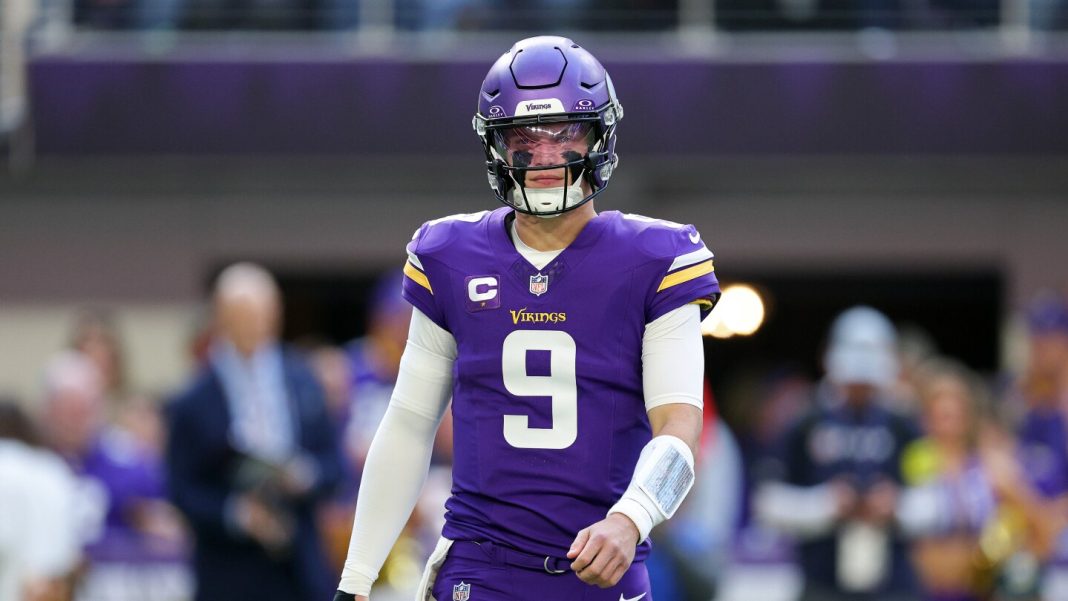The spotlight glares intensely on Kevin O’Connell, not just as the head coach of an NFL franchise, but as the architect of its future. Few coaching dilemmas carry as much long-term weight as the one he now faces: how to best integrate J.J. McCarthy, the team’s prized rookie quarterback. It’s a high-wire act, balancing the immediate demands of team success against the delicate, crucial process of nurturing a young signal-caller to his full potential. This isn’t just about a depth chart decision; it’s about navigating the tightrope between short-term competitiveness and the enduring legacy of a franchise quarterback.
Nurturing a Future Star: McCarthy’s Development Path
The NFL history books are filled with cautionary tales of promising quarterbacks rushed into action before they were truly ready. The physical gifts might be there, but the mental processing, the intricate ballet of reading defenses, understanding protections, and making split-second decisions under immense pressure, takes time. For McCarthy, a quarterback praised for his intelligence and composure but still refining his craft, a measured approach could be paramount.
O’Connell, himself a former NFL quarterback, understands this implicitly. His role extends beyond simply X’s and O’s; it involves cultivating confidence, instilling proper habits, and shielding a young player from undue pressure that could derail his growth. Giving McCarthy time to learn the playbook from the sideline, absorb the speed of the professional game without the full burden of responsibility, and develop chemistry with his new teammates in practice, could be the ultimate investment. The goal isn’t just for McCarthy to play, but for him to
The Pressure Cooker: Winning Now and Team Expectations
While the long-term vision for McCarthy is compelling, the NFL is a league that thrives on immediate gratification. Every season is a high-stakes competition, and coaching careers often hinge on win-loss records. O’Connell’s team boasts a roster with significant talent, particularly on offense, and fans’ expectations for competitiveness are high. This creates a compelling argument for prioritizing the present.
If McCarthy isn’t unequivocally the best option to win games right now, playing him could be seen as sacrificing immediate victories for future potential. The pressure to contend, to make a playoff push, might necessitate a more experienced hand under center, at least initially. As one anonymous scout recently remarked, “It’s a brutal league. Every week is a referendum, and even the most talented rookie can get swallowed if he’s not truly ready, no matter what the long-term plan is. You have to put the best product on the field now, and sometimes that means protecting your future by not exposing it too soon.” The coach’s ultimate job is to win, and every decision, including the quarterback one, is scrutinized through that lens.
The Tightrope Walk: KOC’s Ultimate Challenge
Kevin O’Connell’s challenge is unenviable. He must balance the fiduciary responsibility to the team’s current playoff aspirations with the foundational duty of developing a potential franchise quarterback. The ideal scenario, of course, is that McCarthy proves ready sooner rather than later, demonstrating in practice and preseason that he can elevate the team without being overwhelmed. But the reality is often far more nuanced.
This isn’t a decision made in a vacuum; it will be informed by McCarthy’s progress, the performance of any veteran bridge quarterback, and the overall trajectory of the team. Ultimately, O’Connell isn’t just coaching a team; he’s orchestrating a franchise’s future. His handling of J.J. McCarthy will define not only the rookie’s career but potentially the legacy of O’Connell’s tenure as head coach. It’s a delicate balancing act, and one that will be watched with bated breath by fans and analysts alike.




